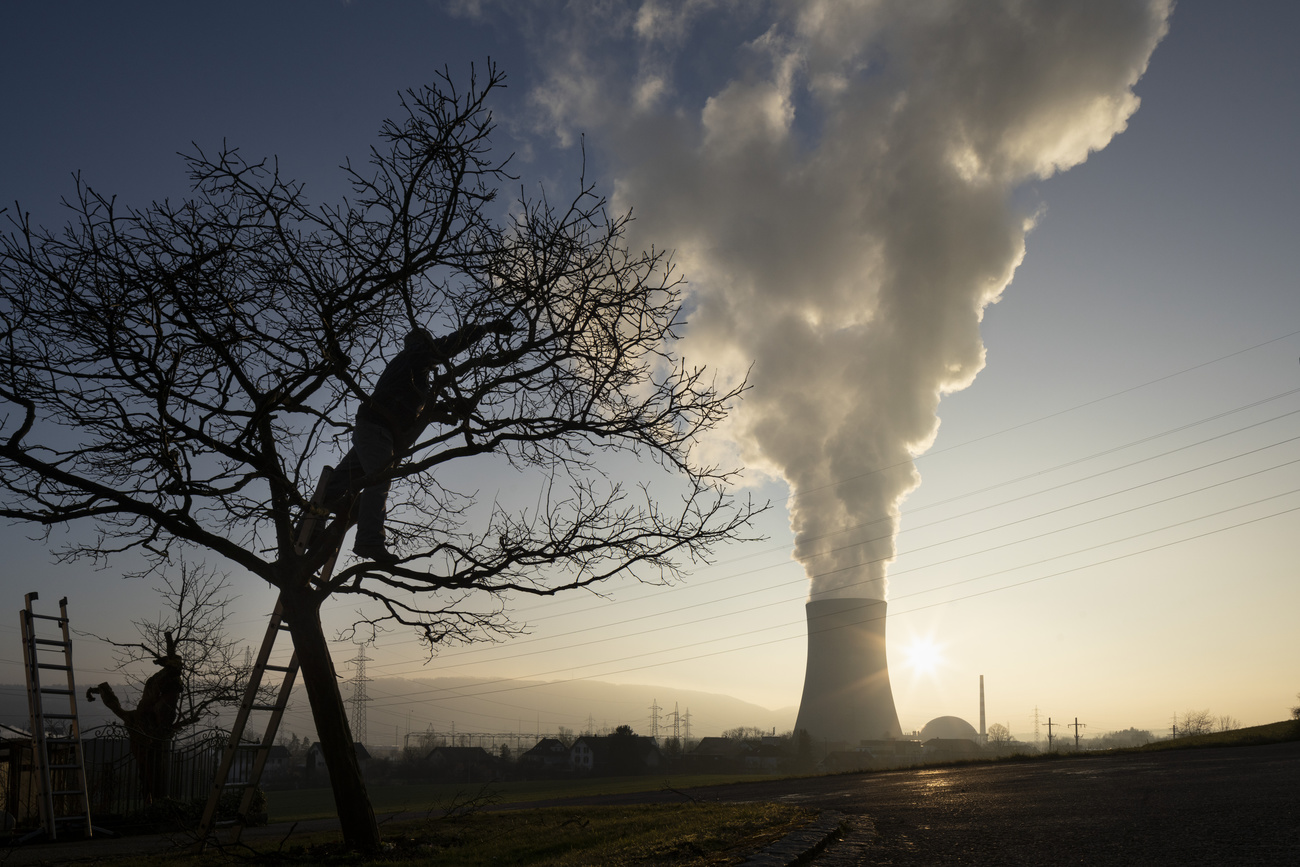
Swiss energy minister suggests way forward for new nuclear power plants

According to Swiss Energy Minister Albert Rösti, existing nuclear power plant sites in Switzerland are suitable for the construction of any new power plants. “I could imagine us building another one in Mühleberg, for example,” said Rösti in an interview.
+ Get the most important news from Switzerland in your inbox
The head of the Federal Department of the Environment, Transport, Energy and Communications said in an interview with SonntagsBlick that a nuclear power plant would have a difficult time at a new location simply because of public acceptance.
The population of Leibstadt in canton Aargau, where there is a nuclear power plant, “have lived from it for decades and view it positively, also in terms of jobs,” said the Energy Minister.

More
Could Switzerland build new nuclear power plants?
He countered criticism from the neighboring German state of Baden-Württemberg. Germany had been dependent on Swiss electricity for three winters before the most recent one. “Our policy is therefore also of European interest,” said Rösti. He himself would “rather live next to a nuclear power plant than have to experience an electricity shortage”, he said.
No concrete plans
There have been no plans for a new nuclear power plant from either the federal government or the energy companies. Rösti only wants to talk about possible costs if a company actually wants to build a power plant.
There is unlikely to be any new nuclear power plants without massive subsidies. For Rösti, one thing is clear: as long as there is a ban, companies will not even think about new projects. “We have to act now in order to be ready later,” Rösti told the media in Bern last Wednesday. At a media conference, he explained the Federal Council’s plan to remove the ban on the construction of nuclear power plants from the law.
In 2017, the Swiss electorate voted in favor of a ban on the construction of new nuclear power plants. “Only the people can overturn a popular decision,” said Rösti when asked about this by SonntagsBlick. The Federal Council is obliged to anticipate new situations and submit proposals to the people.
The new situation has arisen as a result of the decarbonisation targets and the war in Ukraine. In addition, the population is growing faster than anticipated when the Swiss voted in 2017 and renewable energy projects, such as Alpine solar plants, are being delayed. The government therefore believes that nuclear power plants should remain a long-term option in Switzerland.
By lifting the ban on the construction of new nuclear power plants, Rösti wants to address a concern of the popular initiative “Electricity for all at all times (stop the blackout)” into account. He is preparing an indirect counter-proposal. Parliament could possibly discuss this as early as the end of next year. “And in the end, the people will decide,” said Rösti in a recent interview.
Translated from German by DeepL/jdp
This news story has been written and carefully fact-checked by an external editorial team. At SWI swissinfo.ch we select the most relevant news for an international audience and use automatic translation tools such as DeepL to translate it into English. Providing you with automatically translated news gives us the time to write more in-depth articles.
If you want to know more about how we work, have a look here, if you want to learn more about how we use technology, click here, and if you have feedback on this news story please write to english@swissinfo.ch.

In compliance with the JTI standards
More: SWI swissinfo.ch certified by the Journalism Trust Initiative






























You can find an overview of ongoing debates with our journalists here . Please join us!
If you want to start a conversation about a topic raised in this article or want to report factual errors, email us at english@swissinfo.ch.